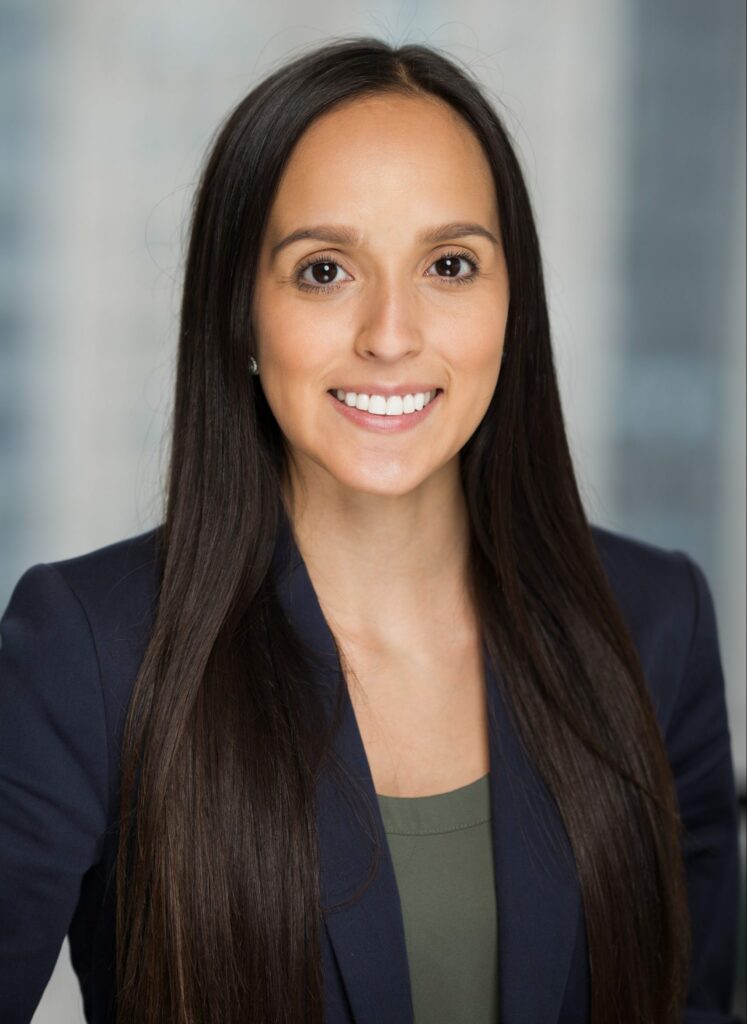
Written by James Tekippe, CFA and Carla Zarazua
Key opinion leaders (KOLs) have traditionally served as strategic partners to the pharmaceutical industry. They do so by providing their experience and expertise in the research and development of novel medicines, treatments, and devices in addition to serving as liaisons for the education and promotion of these products. Given their thought leader status, KOLs are frequently engaged by life sciences companies and other healthcare companies in consulting relationships to further specific business goals and initiatives. With the increased scrutiny of the arrangements between these companies and healthcare providers over the past decade, it is more important than ever to understand how to engage with these KOLs in a compliant manner with compensation set at fair market value (FMV).
Regulatory Background and History
For the past decade, pharmaceutical and device manufacturers and group purchasing organizations have been required to report any payments and transfers of value to physicians and hospitals under The Physician Payment Sunshine Act. In this instance, the manufacturers and organizations are referred to as “Reporting Entities” by CMS and the physicians and hospitals are referred to as “Covered Recipients.” The purpose of this requirement is part of a push to increase transparency and accountability in the relationships between pharma and KOLs.
CMS has made this information publicly available since 2014 through its “Open Payments” program. This program allows anyone to understand what specific Reporting Entities are paying out to Covered Recipients, and the specific payments and transfers of value Covered Recipients are receiving. In 2018, the Substance Use-Disorder Prevention that Promotes Opioid Recovery and Treatment for Patients and Communities Act, also known as the Support Act, expanded upon the Sunshine Act by requiring Reporting Entities to include certain non-physician providers in the list of Covered Recipients. This list included physician assistants, nurse practitioners, clinical nurse specialists, certified registered nurse anesthetists, anesthesiologist assistants, and certified nurse midwives. The reporting requirements began in 2021, and 2022 has been the first year CMS included data for the expanded list of Covered Recipients.
The expansion of which relationships and transfers of value are required to be reported to CMS and the recent legal settlements with both Reporting Entities and Covered Recipients are indicators of a long-term trend. Due to the scrutiny of these relationships with KOLs and the desire for increased transparency into the payments between Reporting Entities and Covered Recipients, this is going to continue to be with us for the long haul.
What is a Key Opinion Leader?
To better understand the relationship between KOLs and the life sciences industry, it is important to begin by defining how these healthcare providers differ from their peers. KOLs are distinguished through the experience and expertise they have accumulated in activities that include publishing research, speaking at conferences, acting as investigators or advisors for clinical trials, and aligning themselves with medical societies, among others. This breadth of clinical knowledge can be invaluable to life sciences companies that utilize this expertise to further their own business goals.
The arrangements between life sciences companies and KOLs are often established to utilize a particular KOL’s expertise in various supportive tasks. These tasks include writing abstracts and manuscripts, giving promotional or scientific speeches, supporting an investigational drug’s clinical development, supporting a brand’s promotion, and participating in or leading an advisory board. As KOLs are not inclined to provide these services without compensation, any company engaging with a KOL that either directly or indirectly could refer business to that entity should follow these steps when establishing a compensation arrangement:
- Ensure a legitimate business need for the arrangement.
- Document that the compensation established is FMV.
- Create and enforce a compliance policy for all arrangements.
The remainder of this article will outline the major factors to consider when going through these steps in KOL arrangements.
Purpose for Engaging with Key Opinion Leaders
The first step any entity should take when establishing a relationship with a KOL is documenting a legitimate business need for the arrangement absent the potential for referrals. In its updated Code of Ethics from 2022, AdvaMed indicated that:
“A legitimate need arises when a Company requires the services of a Health Care Professional to achieve a specific objective, such as the need to train Health Care Professionals on the technical components of safely and effectively using a product; the need for clinical expertise in conducting product research and development; or the need for a physician’s expert judgment on clinical issues associated with a product. Designing or creating an arrangement to generate business or to reward referrals from the contracted Health Care Professional (or anyone affiliated with the Health Care Professional) are not legitimate needs for a consulting arrangement.”
Once a legitimate need has been identified and documented, an arrangement with a KOL should establish at minimum the following in a written document:
- The services to be provided by the KOL.
- The number of KOLs necessary for this role.
- Whether or not specialty expertise or other training is needed.
- An outline of the time required for this role.
These factors should be reviewed periodically to ensure any material changes are reflected in the arrangement and compensation to a KOL.
Establishing Fair Market Value
After establishing a legitimate need and written arrangement, the next step is determining compensation that is consistent with FMV. The Centers for Medicare and Medicaid Services’ (CMS) updated Physician Self-Referral Law (commonly referred to as the Stark Law) provides the following guidance on its definition of FMV:
For general compensation arrangements, FMV is defined as the value in an arm’s length transaction, consistent with the general market value of the subject transaction.
The general market value of compensation in the final rule is defined as: Compensation – with respect to compensation for services, the compensation that would be paid at the time the parties enter into the service arrangement as the result of bona fide bargaining between well-informed parties that are not otherwise in a position to generate business for each other.
Determining FMV rests on various factors specific to a particular arrangement, but there are certain hallmarks of this process to keep in mind which include the following:
- Utilize multiple independent data points that align with the role in question.
- These data points should align with the duties and experience required for the role and should not be reflective of market data that is representative of referral relationships (for example, other transactions between KOLs and life sciences companies). Specialty-specific data is acceptable assuming the outline of the role requires specialty expertise. Finally, understanding whether the role requires a physician vs. a non-physician provider ensures data points considered align with the provider type necessary for the role in question.
- Right size data to match the arrangement in question.
- Compensation data may be presented in either hourly or annual indications. It is vital that data be aligned from what is indicated in the surveys to how a specific arrangement will be paid (hourly, monthly, or annual basis).
- Don’t assume a specific percentile is neither always FMV nor never FMV.
- CMS provided additional commentary in its updated Stark Law around the reliance on survey data to determine FMV. One key takeaway was that no single percentile should be considered FMV in all circumstances, and the specific facts of a particular arrangement or provider should always be considered when reviewing survey data. In that same vein, no survey percentile should ever be deemed never consistent with FMV as the superior expertise or advanced services required of a provider may warrant compensation at or beyond the highest percentiles listed in available survey data.
- Apply the use of experience and expertise consistently.
- When reviewing the experience and expertise of a provider, it is acceptable to base the selection of a rate for a specific provider on their experience. This could result in more qualified and experienced providers allowing for the selection of higher rates compared to less qualified providers. Examples of experience levels to consider are clinical experience, specialty training and expertise, frequency of presentations and publications, leadership and academic roles, consulting experience, and national or international notoriety. Regardless of how these selections are made the priority should always be to utilize a consistent and objective approach in the selection process.
Establishing Compliance Protocols
Establishing FMV may be viewed as the major hurdle in forming a compliant arrangement, but regulatory authorities may question both the amount of payment and the reasons for this payment. As such, establishing a formalized compliance policy in writing that outlines the various steps taken by a company is a prudent step to safeguard against suspicion and sham arrangements. The steps outlined in the policy will allow for a consistent approach to engaging with physicians and for establishing FMV compensation. In addition to outlining a policy, it is important to appoint compliance personnel to oversee the policy. This includes selecting KOLs and regularly auditing the program. In the “OIG Special Fraud Alert: Speaker Programs” issued November 16, 2020, a potential risk factor noted was the selection of providers being made or influenced by the sales or marketing team. With that said, utilizing compliance personnel over the sales or marketing team will help decrease the risk of fraudulent arrangements.
Conclusion
The scrutiny of arrangements with KOLs only appears to be increasing for the foreseeable future as indicated by the recent OIG special fraud alert and recent court cases relating to these types of arrangements. These arrangements with KOLs can be vital for the research and promotional goals of the pharmaceutical and healthcare industry. Therefore, these relationships do not appear to be going anywhere either. Understanding the regulatory environment and establishing compliance protocols to define the need for these arrangements, with compensation that is consistent with FMV, is vital for companies trying to engage with KOLs in an appropriate manner.
Sources
- 42 U.S.C. § 1320a-7h.
- Public Law No. 115- 271.
- 42 CFR § 411.351.
- 3 Office of Inspector General, “Special Fraud Alert: Speaker Programs,” Alerts and Bulletins, November 16, 2020.
- AdvaMed U.S. Inc. (June 1, 2022). AdvaMed Code of Ethics on Interactions with U.S. Health Care Professionals. https://www.advamed.org/wp-content/uploads/2022/03/2022-AdvaMed-Code-of-Ethics-Digital.pdf.






